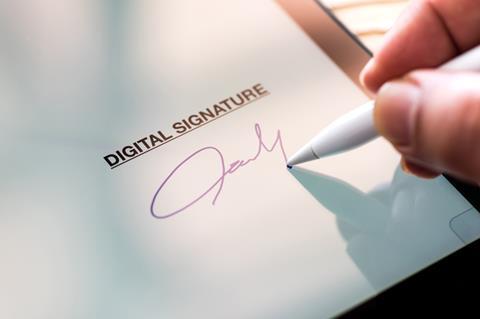Latest electronic signature technology can be at least as secure as physically witnessed ink signatures on documents such as deeds, a group of experts chaired by a High Court judge and a law commissioner has concluded. The finding, in an interim report of the industry working group on Electronic Execution of Documents, may help clear a lingering doubt about the use of digital signatures in sensitive legal transactions.
In its report, published yesterday, the working group concludes that so-called qualified electronic signatures (QESs), which require parties' identities to be verified by an approved certificate provider, 'are capable of fulfilling the same objectives as physical witnessing and attestation'. Given the complete audit trail created by the system 'there is also an argument to be made that a QES is likely to be more reliable than a signature witnessed in an unsupervised environment.
The working group, currently co-chaired by Mr Justice Fraser and Professor Sarah Green, was set up following a 2019 Law Commission report on the electronic execution of documents, which concluded that in most cases electronic signatures are as legally sound as ink ones. The interim report sets out best practice for using electronic signatures today as well as recommendations for future analysis and reform. It calls on the governmnent to ensure that 'as many official documents as possible... can be executed electronically.'

It cites HM Land Registry's practice guide on the execution of deeds and the Ministry of Justice's lasting powers of attorney project as a good example of government encouragement.
The MoJ welcomed the report. 'We in government are excited about the potential benefits of new, digital ways of working,' justice minister Lord Wolfson (David Wolfson QC) said. The group's best practice guidance 'will help increase confidence in and encourage uptake of electronic signatures'.
In the next phase of work, the group said it will consider the challenges arising from the use of electronic signatures in cross-border transactions and how best to optimise the benefits of e-signatures when set against the risk of fraud.



























5 Readers' comments